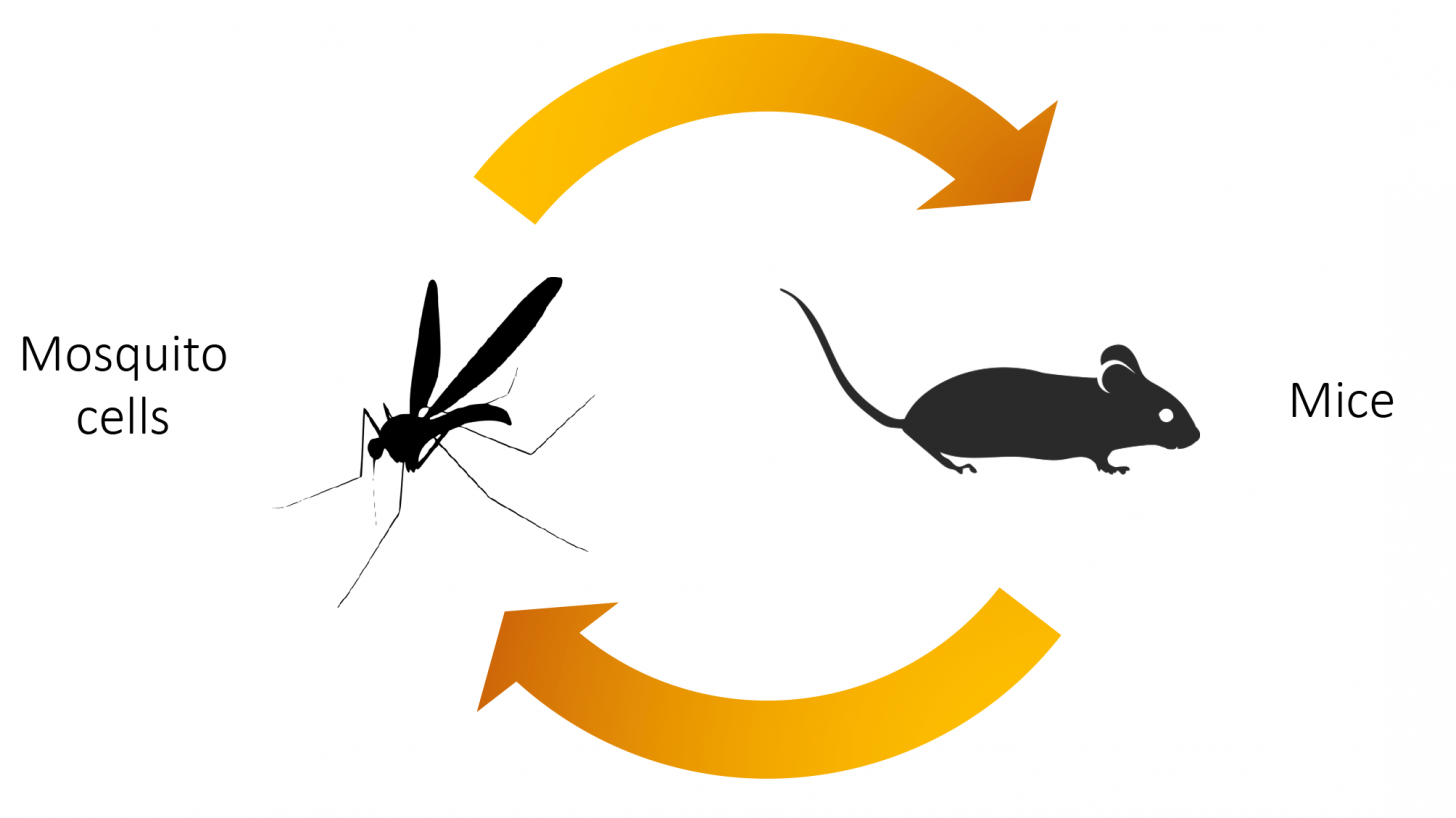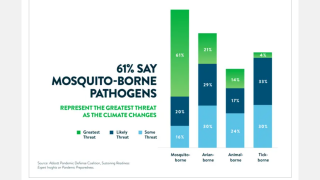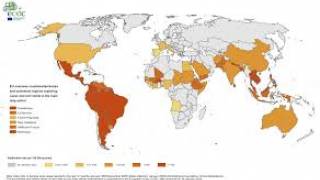Mutations Could Curtail Zika Virus Natural Immunity

Researchers at the California-based La Jolla Institute for Immunology (LJI) recently found that the Zika virus can mutate to potentially breakthrough pre-existing immunity.
To better understand Zika’s fast-paced evolution, the LJI team recreated infection cycles that repeatedly switched back and forth between mosquito cells and mice. This work gave the LJI scientists a window into how the Zika virus naturally evolves as it encounters more hosts.
These LJI researchers found it relatively easy for the Zika virus to acquire a single amino acid change that allows it to make more copies of itself—and help infections take hold more easily.
This mutation (NS2B I39V/I39T) boosts the virus’s ability to replicate in both mice and mosquitoes.
This Zika variant also showed increased replication in human cells.
“The world should monitor the emergence of this Zika virus variant,” commented LJI Professor Sujan Shresta, Ph.D., who co-led the Cell Reports study with Professor Pei-Yong Shi, Ph.D., of the University of Texas Medical Branch, in a media statement issued on April 12, 2022.
Zika virus is carried by mosquitoes, and the symptoms of Zika infection are usually mild in adults. However, the virus can infect a developing fetus, resulting in congenital disabilities such as microcephaly.
“In areas where Zika is prevalent, a vast majority of people have already been exposed to dengue virus and have both T cells and antibodies that cross-react,” says Dr. Shresta.
“When there are so many mosquitoes and human hosts, these viruses constantly move back and forth and evolve.”
“This single mutation is sufficient to enhance Zika virus virulence,” says study first author Jose Angel Regla-Nava, Ph.D., a former postdoctoral researcher at LJI and current Associate Professor at the University of Guadalajara, Mexico.
“A high replication rate in either a mosquito or human host could increase viral transmission or pathogenicity—and cause a new outbreak.”
As of April 2022, data sources indicate there are no outbreaks of Zika worldwide, although a significant outbreak occurred in India in November of 2021.
And the U.S. CDC last confirmed local Zika virus infections in 2020.
Shresta added, “The Zika variant we identified had evolved to the point where the cross-protective immunity afforded by prior dengue infection was no longer effective in mice. Unfortunately for us, if this variant becomes prevalent, we may have the same issues in real life.”
So how can we prepare for this kind of variant?
Shresta’s LJI laboratory is already looking at ways to tailor Zika vaccines and treatments that counteract this dangerous mutation. She will also continue working closely with Regla-Nava to understand how this mutation helps Zika replicate more efficiently.
“We want to understand at what point in the viral life cycle this mutation makes a difference,” says Shresta.
This study’s focus is strategically important since the U.S. FDA has not approved a Zika vaccine as of June 15, 2022.
Additional authors of the study, “A Zika Virus Mutation Enhances Transmission Potential and Confers Escape from Protective Dengue Virus Immunity,” include first author Jose Angel Regla-Nava, Ying-Ting Wang, Camila R Fontes-Garfias, Yang Liu, Thasneem Syed, Mercylia Susantono, Andrew Gonzalez, Karla Viramontes, Shailendra Verma, Kenneth Kim, Sara Landeras-Bueno, Chun-Teng Huang, Daniil M Prigozhin, Joseph G Gleeson, and Alexey V Terskikh. No industry conflicts were disclosed.
This research was supported by the National Institutes of Health (R01 AI153500, R01 AI163188, R56 AI148635, U01 AI151810, R01 NS106387, R01 AI134907, R43 AI145617, and UL1 TR001439), the Sealy & Smith Foundation, the Kleberg Foundation, the John S. Dunn Foundation, the Amon G. Carter Foundation, the Gilson Longenbaugh Foundation, and the Summerfield Robert Foundation.
Zika News publishes fact-checked, research-based information curated for mobile readership.
Our Trust Standards: Medical Advisory Committee
























